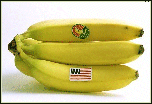Two years ago, I suggested the theme “poetry and war” for a Poetry Porch issue.
This suggestion was based on my experience hosting readings under this heading in libraries
on the south shore of Massachusetts, where many brought forth their verse on the Vietnam War,
their participation in it and in protesting it. It seemed then, fifteen or so years ago, that
such a heading provided a context for presenting many poems already written and in the process
of being written. The underlying premise of these poems agreed that communicating about the
experience of war would contribute to its prevention in the future, because as a society,
we were working together to learn through experience and avoid repeating the horrors of the past.
Now we are at war again, perplexed again by an enemy that plays by its own rules, watch
ing again the tally of the dead rising. The other day, I heard a radio commentator make the
observation that, after the attacks of September 2001, war has become another necessary part
of life. Now it seems that literature about war is a growing field, and the lines between
writings that glorify war and that protest it need to be drawn. As it is during wartime,
even though we are not involved in another world war, the pressure is on to choose between
two different contexts and announce your affiliation in no uncertain terms. Anthologies
are appearing as part of a new genre: war literature. Yet some of them seem to celebrate
the vigor of war in the face of its inevitability as much as others are horrified by its
costs to humanity.
In this installment of The Poetry Porch, you will find poems that represent the
earlier point of view, based on the hope that communicating about war experiences through
art will avert future commitment to it. Richard Moore, in “Jungle War,” asks whether the
conflict we have been longing for is the jungle of ourselves, which might be avoided without
the stimulation of war. In his poem “Doomsday,” Ted Richer dramatizes the spectre of
domination as a symptom of a particular danger in dialogue. Diana Der Hovanessian's poem,
“The Machine of War,” describes the institution of war as having a brain that functions
without human faculties.
Whether it is because I grew up in an area of Pennsylvania founded by Quakers who refuse
to bear arms, I was raised by a young mother who read Dr. Spock, or I protested the war in
Vietnam and saw the war brought to an end, I still prefer the resolution of differences
through diplomacy and economics over military force today as much as I did thirty years ago.
I am increasingly aware, however, of the weaknesses of my position: I am not familiar with
and do not understand the military mindset and culture, I am reluctant to characterize enemies
as evil, I am privileged to have grown up in a nation that has never been occupied. Whether
these views are sustainable or not remains to be seen, but if we are to sustain hope in the
future, in the planet and the universe, we must sustain the kind of hope that is represented
in these pages.
Joyce Wilson
August 2005-2006
To read more poetry, visit the Web site
Poets Against the War.
For an overview of poetry and war, see the essay by Erica Funkhouser “Singing in Dark Times,” Harvard Review, Number 29, 2005.
Anthologies recently considered:
Paul Fussell, The Norton Book of Modern War (W. W. Norton & Company, 1991)
Robert Hedin, Old Glory: American War Poems from the Revolutionary War to the War on Terrorism (Persea Books, 2004)
Richard Marius, The Columbia Book of Civil War Poetry (Columbia University Press, 1994)
J.D. McClatchy, Poets of the Civil War (The Library of America, 2005)
Harvey Shapiro, Poets of World War II (Library of America, 2003)
John Stallworthy, The Oxford Book of War Poetry (Oxford University Press, 1984)

